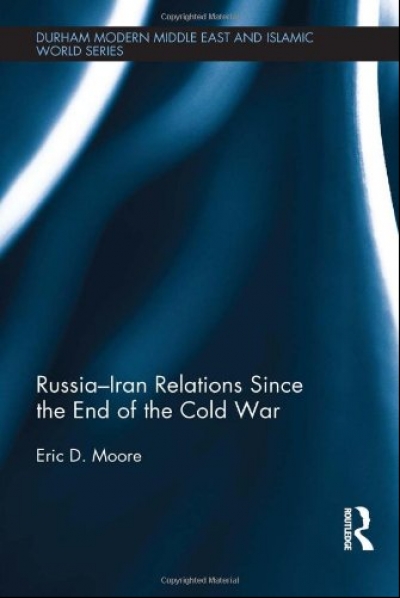



On one side of Khorasan, Iranian revolutionaries struck a blow against the US (capitalist) empire. On the other side, Afghan freedom fighters struck a blow against the Russian (communist) empire. Taken together, these events signaled the decline and fall of the two major Western imperial ideologies of the 19th and 20th centuries. Therefore the simplest and most obvious interpretation of the Khorasan ahadith is that the “Muslim army” that will liberate al-Quds is a unified army of the Islamic Awakening which emerged simultaneously from the two sides of Khorastan in 1979.
The Arabian rulers have exposed themselves by their unrelenting hostility towards the Islamic Republic when they should have embraced it. These hypocrites put on the appearance of being Muslims but are in reality stooges of Zionism and imperialism.
The Trump regime’s policy of courting Russia is designed to de-link it from China and Iran, two countries being targeted by the US. Will it succeed?
At the root of the US’ unremitting hostility towards the Islamic Republic of Iran is the success of the Islamic Revolution in 1979, its ability to withstand a raft of sanctions and now, its decision to abandon the dollar.
By electing the worst specimen among them—Donald Trump as president—the American people have exposed their true nature for which the world thanks them!
Addressing Air Force officers on 2-7-2017 commemorating the historic pledge of allegiance by air force officers given to Imam Khomeini 38 years ago, the Rahbar ex-posed the true nature of the US. He also took to task the new American president who has been taking potshots at the Islamic Republic of Iran.
America has never been a safe place for sane people. How can it be when its claim to fame rests on its ability to kill the largest number of people worldwide (at least 4 million people since 2001) and incarcerated millions of its own people (2.3 million and counting)?
A Syrian sheikh (head of the Baqqarah tribe) Nawwaf al Bashir has dropped a bombshell by exposing how Syrian opposition ‘leaders’ have pilfered millions of dollars given by the Saudis. He has accused all of them of corruption.
The Islamic Republic of Iran has survived 38 years of sabotage, wars and sanctions and still made immense progress because of the commitment of its leaders to the values of Islam and support of its masses. Taqwa has been institutionalized in the Islamic Republic making it impregnable to the enemies’ conspiracies.
Unlike most other countries, Iran’s economy is deeply linked to its political and security situation. Without taking this aspect into consideration, its economis progress cannot be properly evaluated.
في نطاقها الأوسع[1]، تمتد الحركة الإسلامية لتشمل الأمة بأسرها. بينما تتمثَّل أضيق هذه النطاقات الحركية في شطر الأمةِ الأكثر سعًيا نحو الهدف النهائي[2] وقبل نحو عامٍ تقريبًا[3]، كان من الصعب تحديد مجموعة ريادية واحدة داخل الحركة الإسلامية، رغم أن عددًا من المجموعات المنظَّمة قد بسطت دعواها بأنها طليعة هذه الحركة، وهي حركات وأحزاب مثل جماعة الإخوان المسلمين في العالم العربي، وجماعت إسلامي[4] في باكستان، كذا ادعت بعض الدول القومية التي يقطُنها مسلمون أنها «إسلامية».
In about 10 years, China’s GDP will surpass that of the US. What does China’s economic and military power mean for the Muslim world?
If the US were to try and meddle with the Iran deal, it would end up as loser.
This is the second part of Zafar Bangash’s article on “change”; the first part was published in the October 2016 issue of Crescent International, concluding with outlining some of the qualities of muttaqi leadership.
3Three countries in South Asia—Iran, Pakistan and Afghanistan—have between them enormous mineral and energy resources. This makes them the special target of predatory powers.
2President Erdogan’s policies are leading toward facilitating the establishment of the Kurdish State in Northern Iraq while he thinks he is undermining the Kurds in Syria and Turkey.
1Is this man (shown in the picture) fit to issue fatwas about who is a Muslim and who is not? This man, the so-called of mufti of 'Saudi' Arabia, is blind and believes the earth is flat and that men can cannibalize their wives. Can Muslims really take him seriously? Further, the Saudi rulers have serious character flaws that make them unfit to be in control of the affairs of Hajj.
1The Western corporate media are masters of disinformation. Their ideology is well known: everything Western is superior and others’ culture, philosophy, ideology especially those of Muslims, are inferior. Their particular target is Islamic Iran because it stands for clear Islamic principles.
The months of August and September highlight two anniversaries: the first, Hizbullah’s valiant resistance to Zionist aggression against Lebanon in 2006 and the second Islamic Iran’s eight year long epic defence of the Islamic State against the combined might of kufr emanating through Ba‘thist Iraq.
Russian-Iranian relations form the backdrop of this review in which Western writers are found to lack understanding of other societies because they have little knowledge of local languages, culture or access to primary sources. Dmitry Shlapentokh, associate professor at Indiana State University, South Bend, Indiana, reviews Russia-Iran Relations Since the End of the Cold War by Eric D. Moore (Routledge, 2014; 242 pp., $8.84 hbk).

